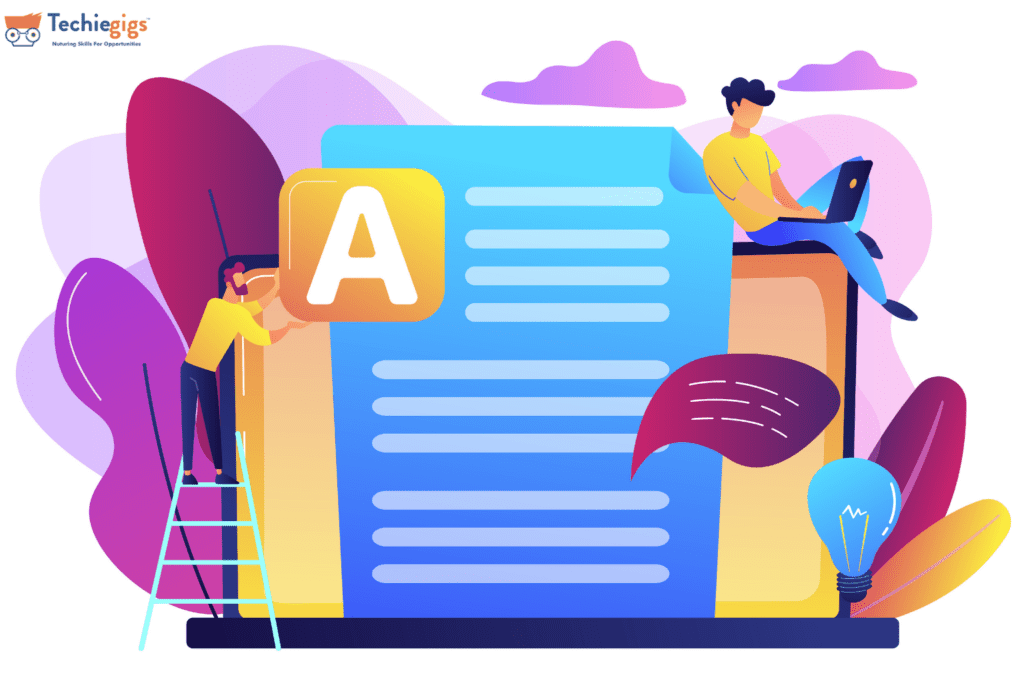Black Hat SEO: The Dark Tactics That Can Destroy Your Rankings
SEO (Search Engine Optimization) is the backbone of online visibility. Whether you’re a blogger, business owner, or digital marketer, ranking high on Google can bring massive traffic and potential customers to your website. But in the race to the top, some take shortcuts – shortcuts that can have devastating consequences.

Welcome to the dark side of SEO, where Black Hat SEO tactics promise quick wins but often lead to disastrous penalties. If you’ve ever been tempted to use keyword stuffing, private blog networks (PBNs), or shady link-building schemes, this guide will show you why Black Hat SEO is a ticking time bomb.
Table of Contents
White Hat SEO vs. Black Hat SEO: The Battle of Ethics

Not all SEO is created equal. White Hat SEO follows Google’s guidelines, creating value for users and building organic rankings through ethical practices. Black Hat SEO, on the other hand, tries to manipulate search engine algorithms, often at the expense of user experience.
White Hat SEO: The Ethical Approach
White Hat SEO focuses on sustainable, long-term growth through practices that prioritize users and comply with search engine guidelines. It involves strategies like:
- High-quality, original content that provides real value to readers.
- Keyword optimization done naturally and strategically.
- Organic link-building through authoritative backlinks rather than paid or spammy links.
- Technical SEO improvements, such as optimizing page speed, mobile responsiveness, and proper site structure.
- Great user experience (UX), ensuring fast load times, easy navigation, and mobile-friendliness.
- Compliance with Google’s guidelines, ensuring long-term ranking stability.
Websites that follow White Hat SEO build trust and credibility, making them more resilient to algorithm changes and ensuring sustainable growth over time.
Black Hat SEO: The Risky Shortcut
Black Hat SEO relies on manipulative techniques to gain quick rankings, often at the cost of violating Google’s policies. Some common Black Hat tactics include:
- Keyword stuffing, where keywords are unnaturally crammed into content.
- Cloaking, showing different content to users and search engines.
- Buying or farming backlinks to artificially boost domain authority.
- Hidden text and links, making content unreadable to users but visible to search engines.
- Using PBNs (Private Blog Networks) to create artificial backlink profiles.
While these tactics may deliver short-term gains, they carry a high risk of penalties, which can cause rankings to plummet or even result in complete deindexing from Google.
Key Differences:
| Feature | White Hat SEO | Black Hat SEO |
| Focus | Long-term growth & user experience | Short-term gains & algorithm manipulation |
| Tactics | High-quality content, natural link-building, on-page optimization | Keyword stuffing, link farming, cloaking |
| Risk Level | Safe, builds credibility | High risk, may lead to penalties |
| Google Compliance | Follows search engine guidelines | Violates search engine guidelines |
While Black Hat SEO might seem tempting, the consequences can be catastrophic. Google continuously updates its algorithms to detect and penalize manipulative tactics. Once penalized, recovering rankings is extremely difficult and time-consuming.
Black Hat SEO Tactics That Can Destroy Your Website
If you’re using any of these Black Hat SEO tactics, stop immediately! These techniques may have worked in the past, but Google is smarter now.
1. Keyword Stuffing – The Oldest Trick in the Book
Keyword stuffing means overloading your page with repetitive keywords to manipulate rankings. For example:

❌ “Best shoes for running, cheap running shoes, running shoes for sale, buy running shoes online…” (repeated dozens of times in one paragraph!)
Why it’s bad: Google sees this as spam and will penalize your site. Instead, focus on natural keyword placement and high-quality content that provides real value.
2. Cloaking – Deception at Its Worst
Cloaking involves showing different content to users and search engines. For instance, search engines might see a page full of valuable content, while users are redirected to a spammy sales page.
Why it’s bad: Google considers cloaking a serious violation, often leading to permanent bans from search results. If caught, your site could lose all its rankings overnight.
3. Link Farming & Private Blog Networks (PBNs)
Some SEOs try to build backlinks artificially using PBNs—networks of low-quality sites linking to each other to manipulate rankings.
Why it’s bad: Google’s Penguin Algorithm detects unnatural link-building and devalues or penalizes sites involved. Websites engaging in link farming often see sudden ranking drops as soon as Google updates its link evaluation criteria.
4. Duplicate Content & Article Spinning
Copying content from other websites or using tools to reword articles (article spinning) is an old-school trick to publish “new” content without real effort.
Why it’s bad: Google’s Panda Algorithm detects duplicate content, leading to lower rankings. Article spinning also results in poor readability, making visitors leave the site quickly, which further hurts rankings.
5. Hidden Text & Links
Some websites hide keywords or links in white text on a white background, hoping to trick search engines into ranking them higher.
Why it’s bad: Google has AI-powered crawlers that detect hidden text and penalize sites for deceptive practices. Additionally, hidden links make a website look suspicious and untrustworthy.
6. Negative SEO – Sabotaging Competitors
Some unethical SEOs attempt to damage competitor rankings by pointing spammy backlinks to their sites, submitting fake negative reviews, or hacking websites.
Why it’s bad: Google has become smarter in identifying Negative SEO, and attempting it can backfire on your site’s reputation. Engaging in Negative SEO could also lead to legal consequences, as hacking and fraud are considered crimes in many jurisdictions.
7. Automated Queries & Click Manipulation
Using bots to manipulate click-through rates (CTR) or repeatedly search for keywords to artificially boost rankings.
Why it’s bad: Google can detect bot-driven traffic, and such activities can get your site permanently blacklisted. Moreover, artificially inflated CTR does not translate into real engagement, meaning the tactic is both unethical and ineffective.
8. Doorway Pages
Doorway pages are low-quality web pages stuffed with keywords that redirect users to another website or different page without their consent.
Why it’s bad: Google penalizes doorway pages because they offer no real value to users. Instead of providing useful content, they act as a bait-and-switch, tricking users and leading to poor user experience.
9. Clickbait Titles & Misleading Meta Descriptions
Clickbait involves writing exaggerated or misleading titles to lure users into clicking, only for them to find unrelated or low-value content.
Why it’s bad: Users quickly bounce back from clickbait content, sending negative signals to Google. High bounce rates tell Google that the page isn’t fulfilling user intent, which can cause a drop in rankings.
10. Scraping Content from Other Websites
Some Black Hat SEOs steal content from authoritative websites and republish it without permission.
Why it’s bad: Google recognizes plagiarized content and ranks original sources higher. If caught, your website could receive a copyright infringement notice or be removed from search results entirely.
Google Penalties: The Cost of Black Hat SEO
Google has strict guidelines, and when violated, the penalties can be severe:
1. Manual Actions
Google’s webspam team manually reviews sites suspected of using Black Hat SEO techniques. If violations are found, a manual action penalty is imposed. This can result in a ranking drop or complete removal from search results until the issue is fixed. Webmasters receive notifications in Google Search Console and must take corrective actions before submitting a reconsideration request.
2. Algorithmic Penalties
Google’s Panda and Penguin updates are designed to detect content spam and link manipulation. If your site is flagged by these algorithms, it may suffer a significant drop in rankings without any manual review. Unlike manual penalties, algorithmic penalties cannot be appealed, meaning you must fix the issue and wait for Google’s algorithm to re-evaluate your site.
3. Deindexing – The Worst-Case Scenario
In extreme cases, Google may completely remove your website from search results. This happens when a site is found guilty of severe violations like cloaking, large-scale link farming, or malware distribution. Deindexing means your site will not appear in Google search at all, causing a complete loss of organic traffic.
Recovering from Black Hat SEO Penalties
If your site has been hit with a penalty, don’t panic. Follow these steps to recover:

1. Identify the problem – Check Google Search Console for penalty notifications and analyze traffic drops using Google Analytics.
2. Remove bad links – Use the Google Disavow Tool to reject spammy backlinks and manually request link removals where possible.
3. Fix duplicate/thin content – Update low-quality pages with fresh, valuable content and remove spun or plagiarized content.
4. Improve site structure – Optimize site speed, fix broken links, enhance mobile responsiveness, and ensure a seamless user experience.
5. Submit a reconsideration request – If you’ve received a manual penalty, submit a request to Google after fixing the issues, explaining the corrective actions taken.
6. Monitor SEO health – Regularly track rankings, audit backlinks, and use SEO tools like Ahrefs and SEMrush to ensure compliance with Google guidelines.
7. Be patient and stay consistent – Recovery can take weeks or months. Focus on White Hat SEO and gradual organic growth to rebuild authority and trust.
Conclusion: Stay on the Right Side of SEO
Black Hat SEO might seem like a shortcut to success, but in reality, it’s a shortcut to failure. Google’s algorithms are evolving, and any attempt to game the system will eventually backfire.
Instead of chasing quick wins, invest in ethical SEO strategies that provide long-term benefits. Create valuable content, earn backlinks naturally, and follow Google’s guidelines.
